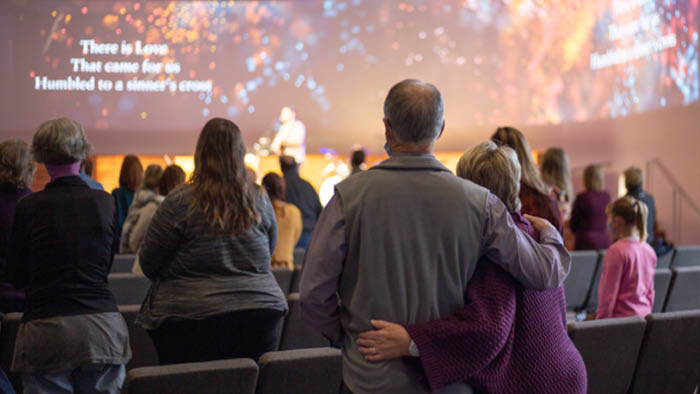
A Quiet Catalyst in the Arts
A Quiet Catalyst in the Arts
Christ Community has always been intentional about its mission and discipleship. A few years ago we began to think about how to be a more intentional influence on the culture of our communities and the world. What would it look like if we didn’t just observe culture but participated in its cultivation? What if, rather than critiquing or vilifying it, we became active participants; in redeeming it and creating redemptive work that influenced it?
Part of this shift in our thinking led us to the arts. We began to imagine using our creativity and talents to positively impact the world. We wanted to create art that was beautiful, thought-provoking, and redemptive.
What would it look like if we didn’t just observe culture but participated in its cultivation?
The Power in Art
Arts have the power to transform individuals and communities, and we were brazen enough to believe that we could impact the artistic culture in our city and around the world. Art can help us see the world in new ways, to understand each other better, and to connect with our shared humanity.
We began to imagine using our own creativity and talents to create art that was not only beautiful, but thought-provoking and redemptive, and encouraging one another to embrace works of art and the artists who create them. The arts could be a powerful tool to actively engage and steward the gifts of our congregants to influence the world for the glory of God by supporting artists, performance organizations, scholarship programs, and missional partnerships.
Looking at how far we have come in the past few years, I am grateful to see the fruit of those conversations.
Serving the Artistic Community
The Four Chapter Gallery is a prime example of how we are putting these conversations into action. Celebrating its tenth anniversary this year, the gallery is a beautiful space in the Crossroads District that serves Kansas City’s thriving artistic community. With regular gallery hours and a rotating selection of art installations, it has become a beloved presence in the city, especially on First Fridays.
More than just a space to exhibit art, the Four Chapter Gallery is also a community hub where artists come together for encouragement, collaboration, and deep conversation. Under the leadership of curator Kelly Kruse, the gallery is helping to support a new generation of artists who are creatively renewing the world alongside God through the act of generative creation.
A Storytelling Mission
Inspired by a similar mission, two other Christ Community congregants set off on a venture to engage the arts by creating movies that make a difference. Stephen and Mary Pruitt, an economics professor, and an up-until-then stay-at-home mom, focused on crafting beautiful art through the visual storytelling medium of film. Despite having no prior filmmaking experience, the Pruitts set out to make movies that would shape imaginations and spark better conversations. Fifteen years later, their fifth full-length feature film, State of Grace, is making the rounds at film festivals around the country, including two highly acclaimed festivals in Los Angeles and New York City, along with a Kansas City premiere at the Glenwood Arts Theatre (coming October 13-15, 2023).
State of Grace is a timely and beautiful film about a young mother who loses control of her life and the custody of her one-year-old daughter, Grace, due to a growing addiction to fentanyl. Inspired by actual events, it is a deeply moving film about the power of community and the price of love. Another example of how Christ Community is quietly encouraging artists to create art that sparks meaningful conversations.
Consider Engaging
Creativity is taking place all around us in closer proximity than you could imagine, and supporting the growing impact of Christ Community in the arts is as simple as taking the time to view exhibits and shows being presented. In a world filled with endless entertainment options, it is easy for artists to wonder if they are just adding to the noise. One of the best ways we can support the arts in our community is by taking the time to notice and appreciate this continued creation. Engaging locally, relationally, and intentionally moves this mission forward. And when we are relationally connected to the artists who created the work, we view and respond to it differently.
In a world filled with endless entertainment options, it is easy for artists to wonder if they are just adding to the noise. One of the best ways we can support the arts in our community is by taking the time to notice and appreciate this continued creation.
Join Christ Community in our mission to engage in the arts and influence culture. Start by supporting the opportunities for engagement right around you. Two ideas for this month include visiting First Friday at the Four Chapter Gallery and seeing State of Grace at the Glenwood. Maybe next month attend an art festival in the community, find an artist whose work resonates with you, and start a conversation.


